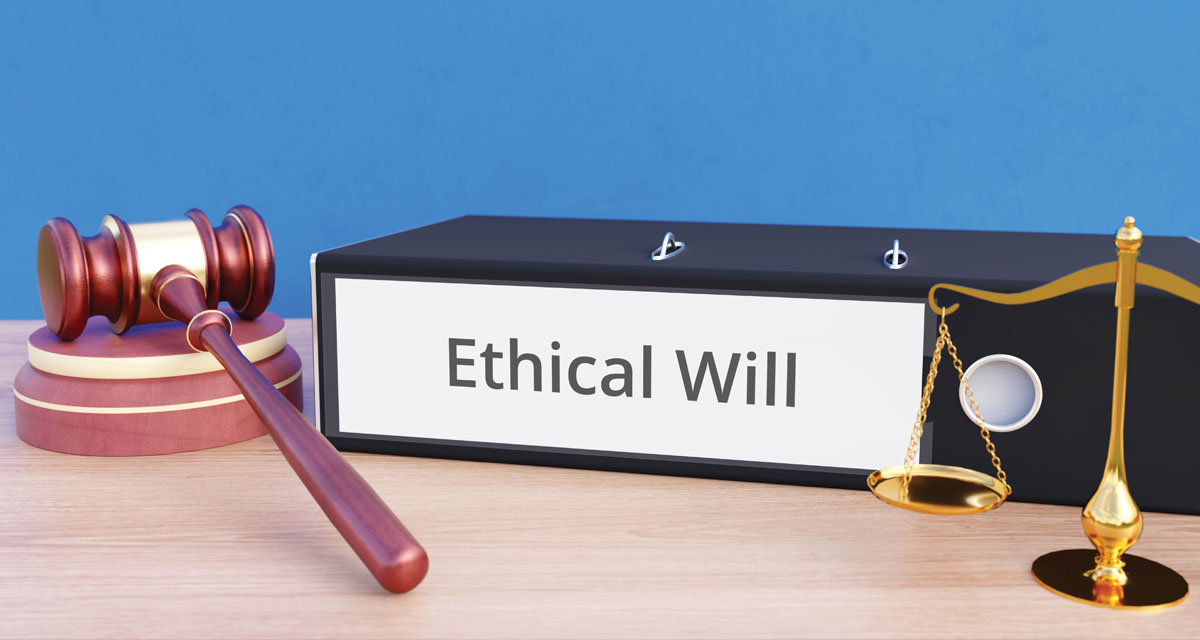Most of us understand the value of a legal will to assure that our material items, investments, and other things of monetary value are given to family and friends in case of our death. But have we ever thought of having an ethical will? An ethical will holds much more than a legal directive for the transfer of our material goods. It is a written document that details the thoughts, emotions, and beliefs that mean the most to us that we want to pass along to those we love.
Why Write an Ethical Will?
Writing an ethical will allows you to communicate your personal story to your family, share your thoughts and memories of your life, and leave a document that details what you feel are your accomplishments and values. By leaving your family with your ethical will, you will be leaving something meaningful behind, so they, as well as future generations, can learn from you and remember your stories after you are gone.
The Stories of a Life Well-Lived
You may have stories you would like to relive with your children and grandchildren, including stories before they were even born. Often family histories are lost because no one bothers to write them down, so an ethical will is a good way to include those rich family memories for generations to come. Some stories may have been shared many times over a Sunday lunch, but to have a written document for those to come is a very special thing. Much of what will be gained and retained in the sharing of your stories will be your perspective. Feel free to share your beliefs and values that resulted from your experiences. An ethical will empowers you to share the lessons you have learned, why they are important to you, and why they may be important to those who come after you.
The Regrets That We All Have
Just as important as the things you did are the things you didn’t do, but you wish you had. As painful as some of these memories may be, consider the value of conveying anything that you regret saying or not saying. Because children are so often influenced to raise their children in the same manner in which they were raised, it is important to share your regrets, so they can learn from your lifelong lessons, perhaps having time to change their own course based on your regrets. In an ethical will, you can also forgive family and friends who have hurt you in the past or ask for forgiveness for things you did or said to others.
The Things You Are Passionate About
If you leave assets to charitable organizations, an ethical will enables you to explain your reasons to family members who may feel slighted that they didn’t receive these gifts. Part of the reason to share your story is to convey why and how you developed your philanthropic beliefs and values, and why you were passionate about a certain charity.
The Blessings from Your Life
Finally, one of the most important things you can write about in an ethical will is to identify the things for which you are most grateful. As each person progresses through life, it’s easy to get caught up in the pursuit of material possessions and status. By sharing with family and friends the things that are most important to you as you assess a lifetime of living, you can help them re-evaluate and perhaps affect their own priorities to hold tight to more personal and less material goals and values.
Ethical wills have no standard form or structure, so feel free to personalize it. From a written letter to an informal note, diary or scrapbook, or to an audio or video recording—however best suits you in sharing what means the most to you is the way you should approach your ethical will.



















